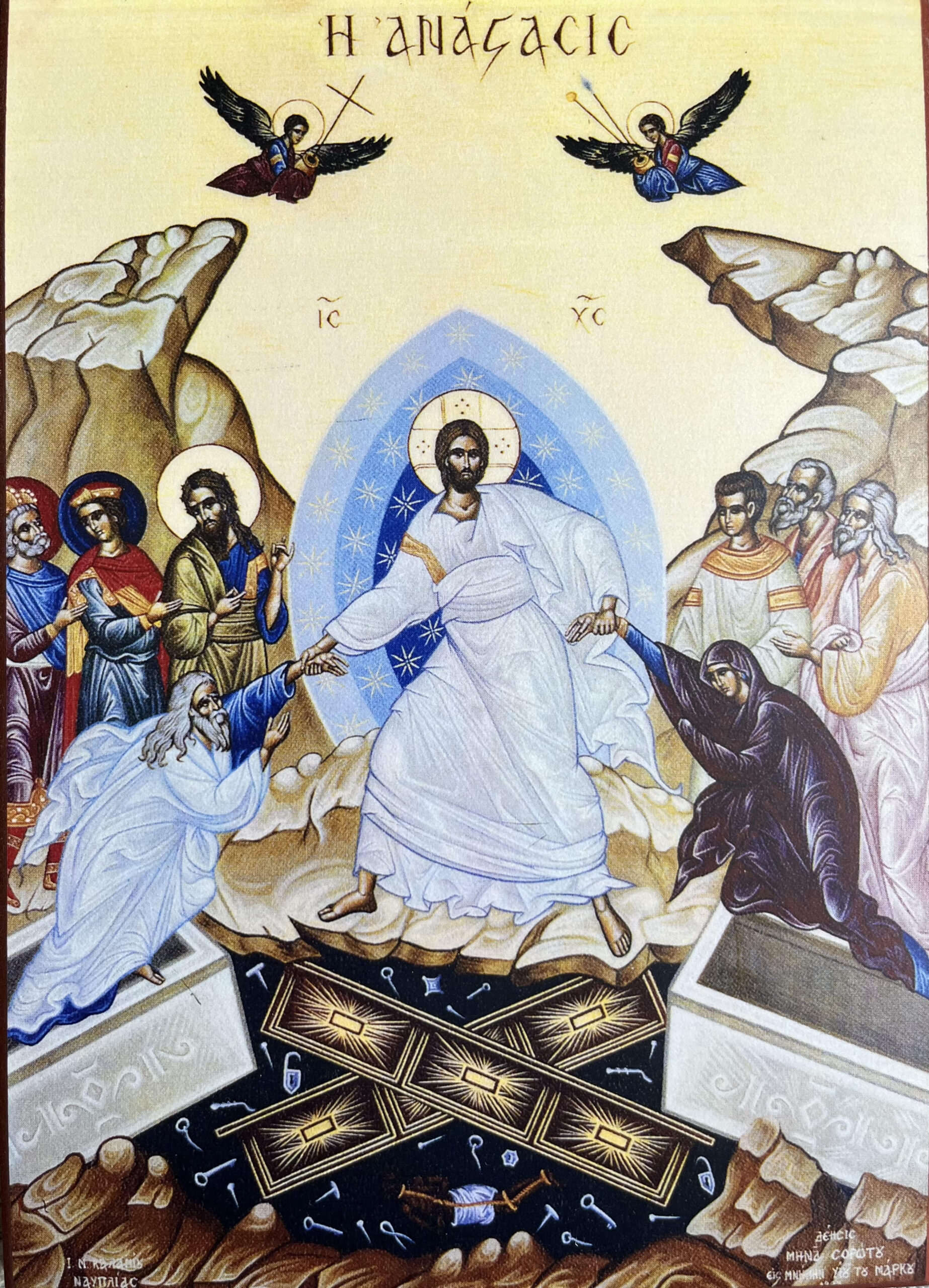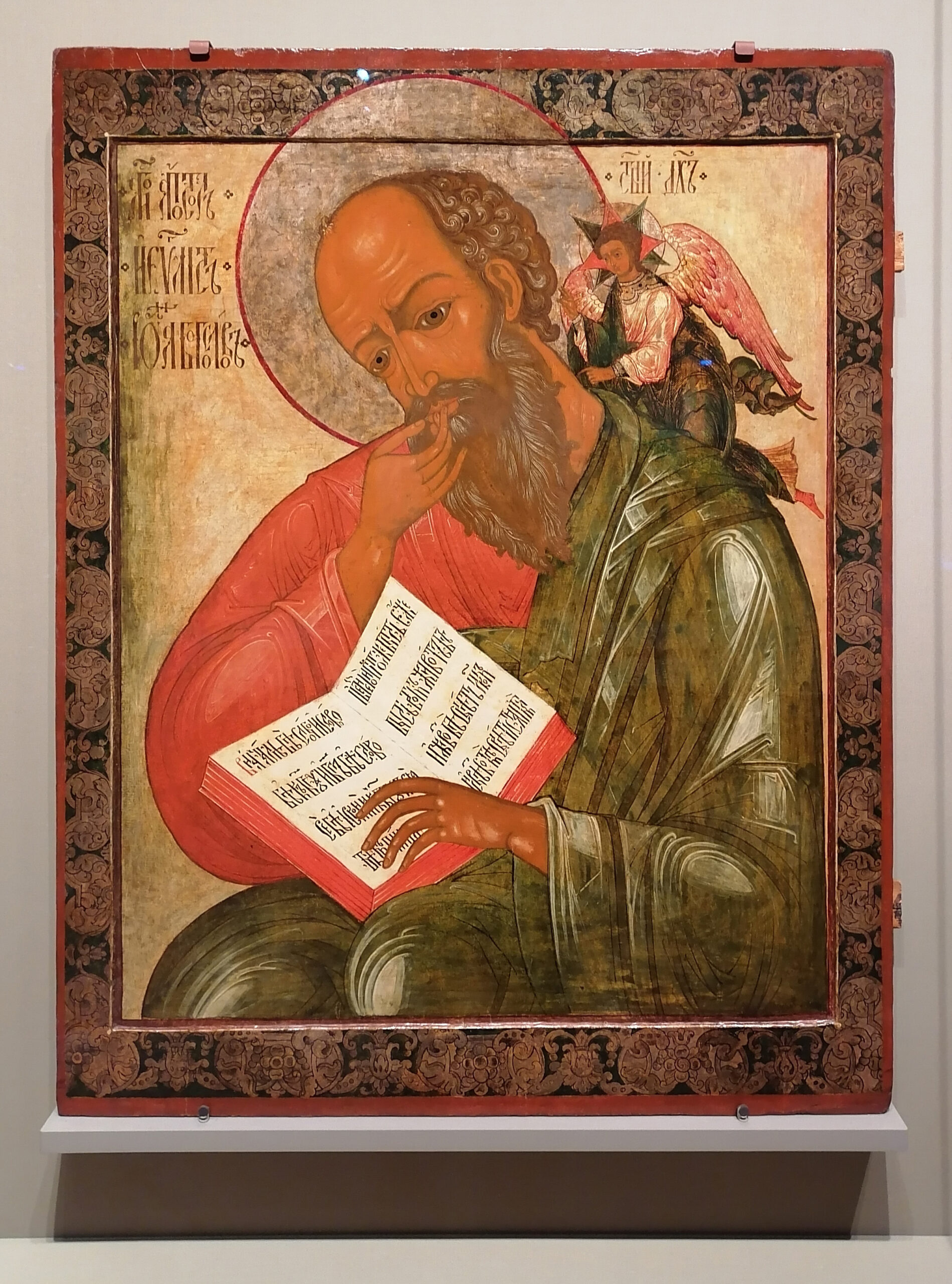Open to me the gates of repentance, O Giver of life, for early in the morning my spirit hastens to Your holy temple, bringing the temple of my body all defiled. But as one compassionate, cleanse me, I pray, by Your loving-kindness and mercy.
~Idiomelon from Sunday Orthros, Triodion (Trans. by Fr. Seraphim Dedes)
—
Do you not know that your body is a temple of the Holy Spirit within you, which you have from God? You are not your own.
I Corinthians 6:19
Do you not know that you are God’s temple and that God’s Spirit dwells in you? If anyone destroys God’s temple, God will destroy him. For God’s temple is holy, and that temple you are.
I Corinthians 3:16-17
Brethren, let us not offer prayers as did the Pharisee, for he who exalts himself will be brought to humility. Let us humble ourselves in the presence of God, as did the Publican, and through fasting cry to Him, “God, be merciful to us sinners.” (Idiomelon, Lauds, Sunday of Publican and Pharisee, Trans. by Fr. Seraphim Dedes)
While there are many well-known Holy Week hymns, there are actually very few well-known Lenten hymns. That’s because most of the Lenten hymns are found in the daily Orthros and Vespers services that are not done in most parishes. The Salutations to the Virgin Mary which is celebrated on the Fridays of Great Lent is not actually a Lenten service. The Great Compline service is mostly Psalm readings. The Pre-Sanctified Liturgy contains Psalm readings, prophecies, and petitions, with a few hymns sprinkled in.
The three hymns that will comprise the next three reflections are from Sunday Orthros which are chanted on the four Sundays of the Triodion and the five Sundays of Great Lent. Each one speaks of the need for our repentance as well as acknowledging the compassion and mercy of God. Rather than seeing these as three hymns that are harsh, I see them as encouraging and hopeful. This reflection will focus on the first of the three hymns:
Open to me the gates of repentance, O Giver of life, for early in the morning my spirit hastens to Your holy temple, bringing the temple of my body all defiled. But as one compassionate, cleanse me, I pray, by Your loving-kindness and mercy.
~Idiomelon from Sunday Orthros, Triodion (Trans. by Fr. Seraphim Dedes)
This hymn focuses us on the idea that our bodies are like temples. And like the temple we worship in, our bodies become dirty and they need to be cleansed. Our church building does not clean itself. It takes intentionality on the part of the small group of people who come and clean it to make it as beautiful as it is.
Saint Paul tells us in I Corinthians 6:19 that our bodies are temples which house the Holy Spirit in us, and that our bodies are not ours, but God’s. In I Corinthians 3:16-17, St. Paul goes even further in saying that because we are the temple of the living God, we are holy, just as God’s temple is holy.
Thus, we need to keep our “temples”, our bodies, cleansed. This goes much deeper than a daily shower, however, which cleanses us on the outside. We need to cleanse the inside of our bodies. We need to cleanse our minds, our hearts, and our souls. The fallen world in which we live makes this difficult. The “filth” we see on computers and on television pollutes our minds. Our constant stress results in anger that can harden our hearts. And the constant challenges in life, whether they be something tangible like the loss of a job or rising inflation; or something intangible, like the collateral damage that stress does to our sense of hope and self-worth, even threatens to darken (at the worst) or even disturb (at best) our souls.
Many of us, if we are honest, will enter into Lent like this. We will feel stressed about life, and sorrowful for our sins, and we will enter this holy period bruised and battered. This hymn, while describing us as bringing “the temple of my body all defiled,” doesn’t focus on this reality that has befallen most of us. These words are almost hidden in the body of the hymn, which focuses on more positive things. The “gates of repentance” are still on the table for every life, at any time. To hasten to the temple early in the morning means that we are going to make repentance a priority. It’s hard to hesitate anywhere at night when we are tired. This is a reminder to us to start the day with God and not to relegate Him only to our last awake moments.
It is true, that maybe some of us feel like we have a “body all defiled.” Maybe because we are carrying around a few extra pounds on the outside, or because we are carrying around a spiritual burden or some guilt on the inside. The good news is that, in the face of our spiritual failures, we meet a God who is compassionate, and who has the power to cleanse us because He is filled with kindness and mercy.
The journey of Lent begins for us the moment we realized that we are not perfect and that only God is perfect. It continues with a desire to not only be more like God but to be with God. This is followed by a realization that in many ways we are missing or have missed the mark with our relationship with Christ. Next is a desire to close that gap and a recognition that only God’s mercy and compassion can do that. And finally, there is the knowledge that no matter how big the gap is between us and God, He can and will close it when we come to Him and ask for that. When we come with humility, contrition and in sincere repentance, His response will be “loving-kindness and mercy.”
The Pharisee, who justified himself by boasting about his works, O Lord, You condemned; but You justified the Publican who was modest, and who with sighs prayed for expiation. For You do not accept boastful thoughts, but hearts that are contrite You do not despise. Therefore, we, too, in humility fall down before You, who suffered for us. Grant us absolution and great mercy. (Doxastikon, Orthros, Sunday of Publican and Pharisee, Trans. by Fr. Seraphim Dedes)
Come with humility and repentance to the Lord and He will open the gates of loving-kindness and mercy to us!

